In vitro fertilization (IVF) is a popular infertility treatment that helps couples who struggle with infertility to conceive a child. IVF involves fertilizing an egg with sperm outside the body in a laboratory and then transferring the resulting embryo to the uterus. This advanced reproductive technology has helped many couples overcome infertility and start a family.
IVF (In Vitro Fertilization) is a complex medical procedure that involves several stages. The typical procedure for IVF includes the following steps: Ovarian Stimulation: The woman is given medication to stimulate the ovaries to produce multiple eggs instead of the usual one egg per menstrual cycle. Egg Retrieval: Once the eggs are matured, a doctor performs a minor surgical procedure called egg retrieval to remove the eggs from the woman's ovaries. Sperm Collection: The male partner provides a semen sample on the same day as the egg retrieval. In cases of male infertility, a doctor may collect sperm directly from the testicles or use previously frozen sperm. Fertilization: The eggs and sperm are combined in a laboratory dish and left for fertilization to occur. Embryo Development: The fertilized eggs are monitored in the laboratory for several days to allow for embryo development. Embryo Transfer: The embryo is transferred back to the woman's uterus using a thin, flexible catheter. Pregnancy Test: After approximately two weeks, a pregnancy test is done to determine if the procedure was successful.
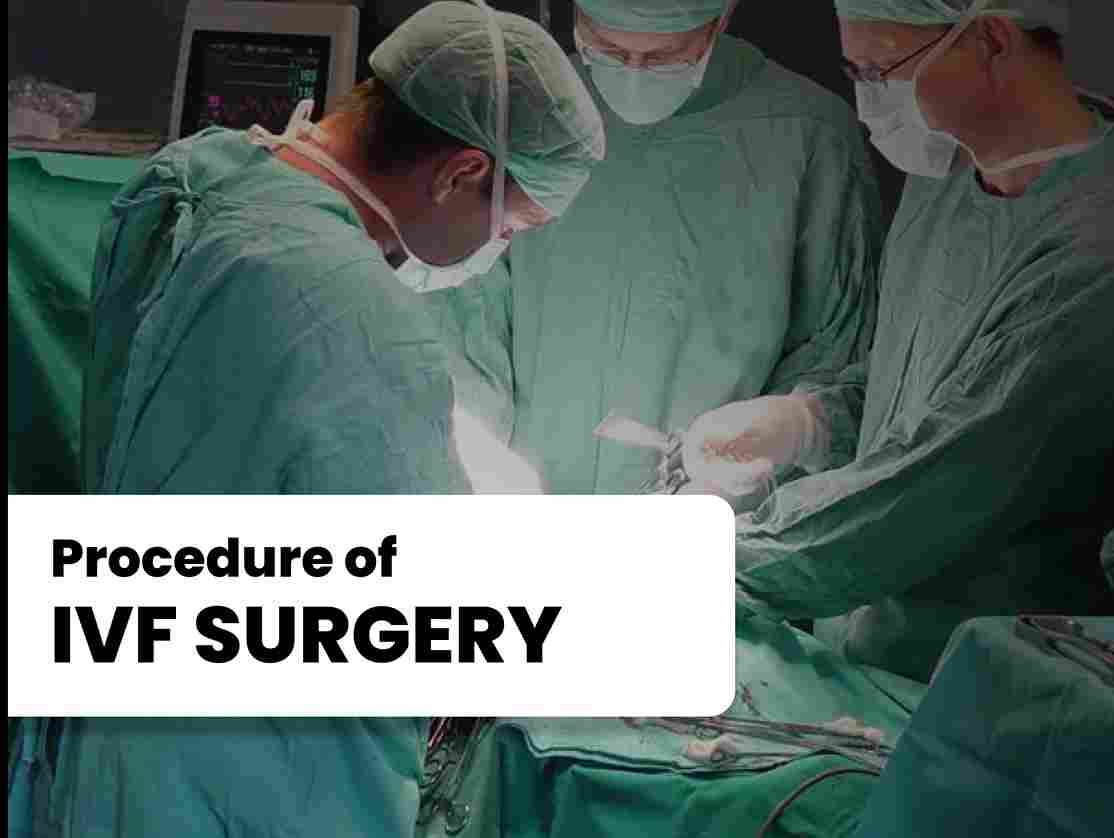
IVF (In Vitro Fertilization) is a complex medical procedure that involves several stages. The typical procedure for IVF includes the following steps:
Ovarian Stimulation: The woman is given medication to stimulate the ovaries to produce multiple eggs instead of the usual one egg per menstrual cycle.
Egg Retrieval: Once the eggs are matured, a doctor performs a minor surgical procedure called egg retrieval to remove the eggs from the woman's ovaries.
Sperm Collection: The male partner provides a semen sample on the same day as the egg retrieval. In cases of male infertility, a doctor may collect sperm directly from the testicles or use previously frozen sperm.
Fertilization: The eggs and sperm are combined in a laboratory dish and left for fertilization to occur.
Embryo Development: The fertilized eggs are monitored in the laboratory for several days to allow for embryo development.
Embryo Transfer: The embryo is transferred back to the woman's uterus using a thin, flexible catheter.
Pregnancy Test: After approximately two weeks, a pregnancy test is done to determine if the procedure was successful.
IVF success rates can vary based on several factors, such as age, the reason for infertility, and the number of previous IVF attempts. However, on average, the success rates for IVF are as follows: For women under 35 years old: The success rate for a live birth is approximately 40% per cycle of IVF. For women aged 35-37 years old: The success rate for a live birth is approximately 30% per cycle of IVF. For women aged 38-40 years old: The success rate for a live birth is approximately 20% per cycle of IVF. For women aged over 40 years old: The success rate for a live birth is approximately 5-10% per cycle of IVF.
IVF and Emotional Health: The emotional toll of infertility and IVF can be significant for many couples. The stress and uncertainty of the IVF process can lead to feelings of anxiety, depression, and frustration. It is important for couples undergoing IVF to seek emotional support from their partners, friends, and family, as well as from mental health professionals who specialize in infertility counseling.
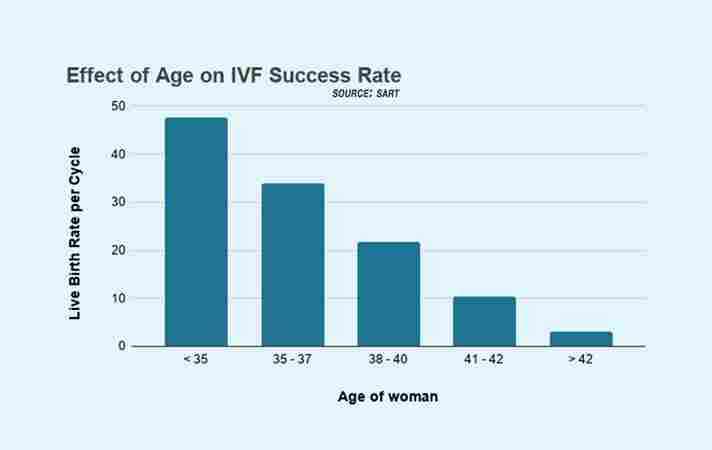
IVF success rates can vary based on several factors, such as age, the reason for infertility, and the number of previous IVF attempts. However, on average, the success rates for IVF are as follows:
For women under 35 years old: The success rate for a live birth is approximately 40% per cycle of IVF.
For women aged 35-37 years old: The success rate for a live birth is approximately 30% per cycle of IVF.
For women aged 38-40 years old: The success rate for a live birth is approximately 20% per cycle of IVF.
For women aged over 40 years old: The success rate for a live birth is approximately 5-10% per cycle of IVF.
IVF and Emotional Health:
The emotional toll of infertility and IVF can be significant for many couples. The stress and uncertainty of the IVF process can lead to feelings of anxiety, depression, and frustration. It is important for couples undergoing IVF to seek emotional support from their partners, friends, and family, as well as from mental health professionals who specialize in infertility counseling.
What to expect after embryo transfer: After an embryo transfer, the woman is typically advised to rest for a short period before going home. The recovery period is usually brief, and most women can resume their daily activities within a day or two. However, it is recommended to avoid strenuous activities and heavy lifting for several days. During the two-week wait after the embryo transfer, the woman will likely be advised to avoid activities that could increase the risk of infection or harm to the developing embryo. This includes avoiding sexual intercourse and hot tubs or saunas. The woman may experience some mild cramping or spotting after the embryo transfer, which is normal. However, if the pain is severe or if there is heavy bleeding, she should contact her doctor immediately. After two weeks, the woman will undergo a pregnancy test to determine if the embryo transfer was successful. If the test is positive, the woman will likely continue to receive care from her fertility specialist until the pregnancy is stable enough to be managed by an obstetrician. This is IVF pregnancy If the test is negative, the women can undergo another round of IVF.
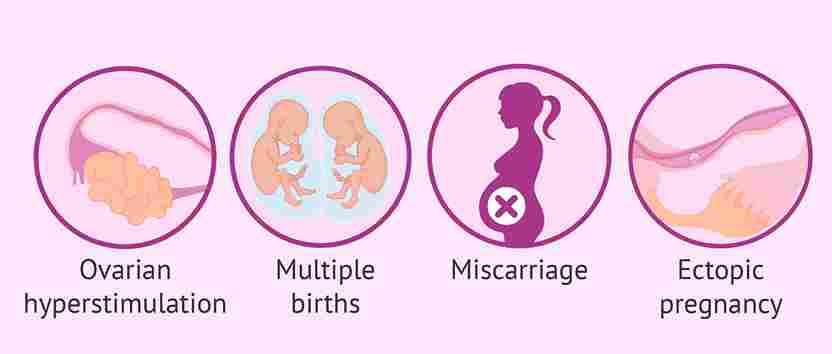
What to expect after embryo transfer:
After an embryo transfer, the woman is typically advised to rest for a short period before going home. The recovery period is usually brief, and most women can resume their daily activities within a day or two. However, it is recommended to avoid strenuous activities and heavy lifting for several days.
During the two-week wait after the embryo transfer, the woman will likely be advised to avoid activities that could increase the risk of infection or harm to the developing embryo. This includes avoiding sexual intercourse and hot tubs or saunas.
The woman may experience some mild cramping or spotting after the embryo transfer, which is normal. However, if the pain is severe or if there is heavy bleeding, she should contact her doctor immediately.
After two weeks, the woman will undergo a pregnancy test to determine if the embryo transfer was successful. If the test is positive, the woman will likely continue to receive care from her fertility specialist until the pregnancy is stable enough to be managed by an obstetrician. This is IVF pregnancy
If the test is negative, the women can undergo another round of IVF.
Intracytoplasmic sperm injection (ICSI) is a specialized form of in vitro fertilization (IVF) that is used in cases of male factor infertility, such as low sperm count, poor sperm motility, or abnormal sperm shape. ICSI involves the injection of a single sperm directly into the center of an egg using a microneedle, rather than allowing the sperm to fertilize the egg on its own. ICSI is typically performed in conjunction with IVF, which involves retrieving eggs from the woman's ovaries and fertilizing them with sperm in a laboratory dish. After the eggs are retrieved, they are placed in a special solution that helps to remove the cells that surround them. The embryologist then selects the best-looking sperm from the semen sample and immobilizes it using a specialized tool. Using a microneedle, the embryologist then injects the immobilized sperm directly into the center of the egg. After injection, the egg is placed in an incubator to allow fertilization to occur. If successful, the fertilized egg will develop into an embryo and can be transferred back into the woman's uterus. ICSI is typically performed under local anesthesia and does not require an overnight hospital stay. Most couples will be able to return home on the same day. After the procedure, the woman will be given medication to support the development of the embryo. The success rates of ICSI vary depending on several factors, including the quality of the eggs and sperm used, the woman's age, and the experience of the fertility clinic. In general, the success rates of ICSI are similar to those of traditional IVF. ICSI is a safe and effective treatment option for couples struggling with male factor infertility. While it is more invasive and expensive than traditional IVF, it can be a highly effective way to achieve a successful pregnancy and fulfill the dream of parenthood.
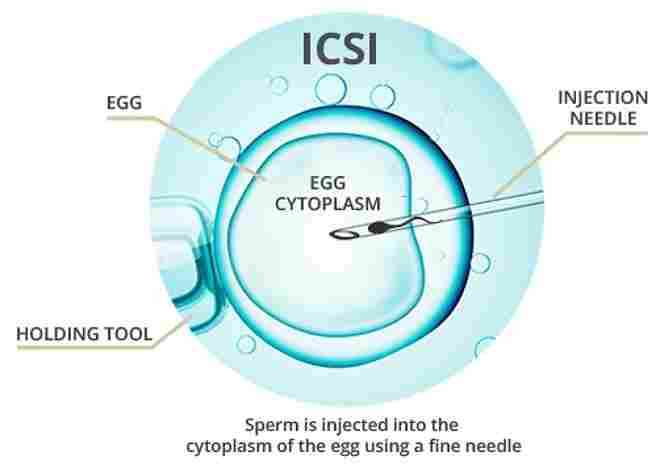
Intracytoplasmic sperm injection (ICSI) is a specialized form of in vitro fertilization (IVF) that is used in cases of male factor infertility, such as low sperm count, poor sperm motility, or abnormal sperm shape. ICSI involves the injection of a single sperm directly into the center of an egg using a microneedle, rather than allowing the sperm to fertilize the egg on its own.
ICSI is typically performed in conjunction with IVF, which involves retrieving eggs from the woman's ovaries and fertilizing them with sperm in a laboratory dish. After the eggs are retrieved, they are placed in a special solution that helps to remove the cells that surround them. The embryologist then selects the best-looking sperm from the semen sample and immobilizes it using a specialized tool.
Using a microneedle, the embryologist then injects the immobilized sperm directly into the center of the egg. After injection, the egg is placed in an incubator to allow fertilization to occur. If successful, the fertilized egg will develop into an embryo and can be transferred back into the woman's uterus.
ICSI is typically performed under local anesthesia and does not require an overnight hospital stay. Most couples will be able to return home on the same day. After the procedure, the woman will be given medication to support the development of the embryo.
The success rates of ICSI vary depending on several factors, including the quality of the eggs and sperm used, the woman's age, and the experience of the fertility clinic. In general, the success rates of ICSI are similar to those of traditional IVF.
ICSI is a safe and effective treatment option for couples struggling with male factor infertility. While it is more invasive and expensive than traditional IVF, it can be a highly effective way to achieve a successful pregnancy and fulfill the dream of parenthood.
In vitro fertilization (IVF) is a medical procedure that involves several steps, some of which may cause discomfort or pain. However, the level of pain experienced can vary from person to person, and some people may not experience any pain at all. The most uncomfortable part of IVF for many women is the ovarian stimulation phase, which involves taking fertility medications to stimulate the ovaries to produce multiple eggs. These medications may cause bloating, abdominal discomfort, and mild cramping. Some women may also experience headaches, mood swings, and breast tenderness. These symptoms typically subside after the medication is stopped. During the egg retrieval procedure, which is typically performed under sedation, a doctor uses a small needle to remove the eggs from the woman's ovaries. Some women may experience cramping or discomfort after the procedure, which can be managed with over-the-counter pain medications. The embryo transfer procedure is usually not painful, but some women may experience mild cramping or discomfort as the catheter is inserted into the uterus. This discomfort typically lasts only a few minutes.
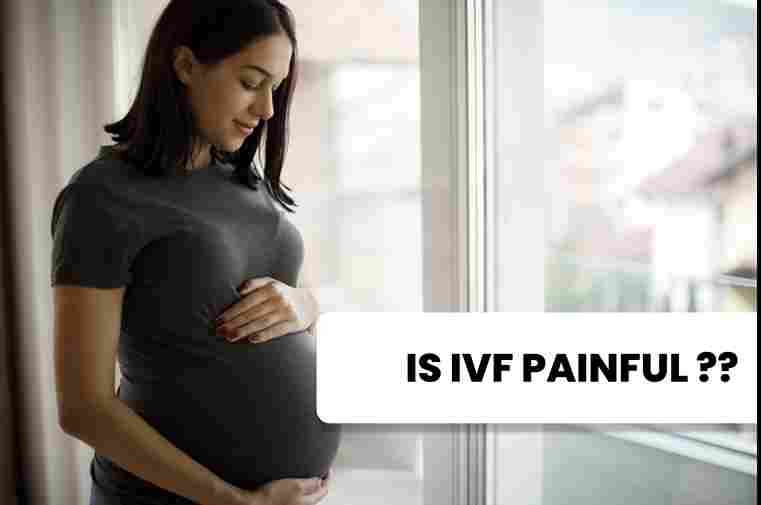
In vitro fertilization (IVF) is a medical procedure that involves several steps, some of which may cause discomfort or pain. However, the level of pain experienced can vary from person to person, and some people may not experience any pain at all.
The most uncomfortable part of IVF for many women is the ovarian stimulation phase, which involves taking fertility medications to stimulate the ovaries to produce multiple eggs. These medications may cause bloating, abdominal discomfort, and mild cramping. Some women may also experience headaches, mood swings, and breast tenderness. These symptoms typically subside after the medication is stopped.
During the egg retrieval procedure, which is typically performed under sedation, a doctor uses a small needle to remove the eggs from the woman's ovaries. Some women may experience cramping or discomfort after the procedure, which can be managed with over-the-counter pain medications.
The embryo transfer procedure is usually not painful, but some women may experience mild cramping or discomfort as the catheter is inserted into the uterus. This discomfort typically lasts only a few minutes.
The average cost of IVF in India is Rs.1,00,000 to Rs.3,50,000. This price may vary depending upon the location, experience of the doctor, hospital, age, etc.
Given below is the cost of IVF in some cities of India. All prices are in INR.
Please Wait..